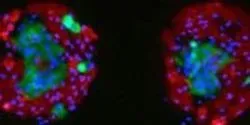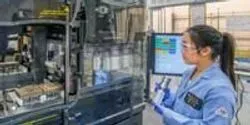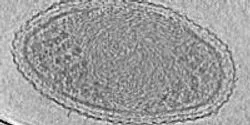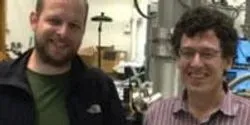All by Lawrence Berkeley National Laboratory
Filter by
AllArticlesAudioEbooksEventsInfographicsNewsProductsSurveysDocumentsVideosVirtual EventsWebinars
The vast majority of the thousands of chemicals in our homes and workplaces have not been tested to determine if they cause cancer. That’s because today’s options are lacking. Rodent tests are too slow, and cell culture tests don’t replicate how cells interact in the body, so their relevance to cancer is limited. Scientists from the U.S. Department of Energy’s Lawrence Berkeley National Laboratory (Berkeley Lab) have set out to change that.

There’s an urgent demand for new antimicrobial compounds that are effective against constantly emerging drug-resistant bacteria. Two robotic chemical-synthesizing machines, named Symphony X and Overture, have joined the search. Their specialty is creating custom nanoscale structures that mimic nature’s proven designs. They’re also fast, able to assemble dozens of compounds at a time.

Berkeley researchers develop breakthrough technique for non-invasive nano-scale imaging.

Berkeley Lab researchers link rising CO2 levels from fossil fuels to an upward trend in radiative forcing at two locations.




















